-
Publications
-
-
Applied political communication
- Triga, V., Mendez, F. and Tziouvas, C. (2018). “Post-crisis normalisation? The 2018 Presidential Elections”. Southern European Society and Politics, doi: 10.1080/13608746.2018.1511347
- Triga, V. (2017). “Parties and Change in Post-bailout Cyprus: The May 2016 Parliamentary Elections”. Southern European Society and Politics, doi: http://dx.doi.org/10.1080/13608746.2017.1312768
- Tsapatsoulis, N., Agathokleous, M., Djouvas, C. and Mendez, F. (2015). “On the design of Social Voting Recommendation Applications”, International Journal on Artificial Intelligence Tools, 24(3): 1550009
- Germann, M., Mendez, F., Wheatley, J. and Serdült, U.(2015).”Spatial Maps in Voting Advice Applications: The Case for Dynamic Scale Validation”. Acta Politica, 50(2):214-238.
- Serdült, U., Germann, M., Harris, M., Mendez, F. and Portenier, A. (2015). “Who Are the Internet Voters?”. In: Efthimios Tambouris et al. (eds.), Electronic Government and Electronic Participation, pp. 27-41. Amsterdam: IOS Press.
- Katakis, N. Tsapatsoulis, N., Mendez, F., Triga, V. and Djouvas, C. (2014). “Social voting advice applications-definitions, challenges, datasets and evaluation,” IEEE Transactions on Cybernetics, 44(7): 1039-1052.
-
Media and Social Media Monitoring
- Mendez, C., Gazzola, M., Clement-Wilz, L., Triga, V., Mendez, F., Djouvas, C. Charambous, A. and Bachtler, J. (2022). Research for CULT Committee – The European Union's Approach to Multilingualism in its Own Communication Policy. [Report] (https://www.europarl.europa.eu/thinktank/en/docume...)
- Mendez, C., Mendez, F., Triga, V. and Carrascosa, J. M. (2020). “EU Cohesion Policy under the Media Spotlight: Exploring Territorial and Temporal Patterns in News Coverage and Tone”. Journal of Common Market Studies, https://doi.org/10.1111/jcms.13016
- Giannoulakis, S. and Tsapatsoulis, N. (2019). “Filtering Instagram hashtags through crowd tagging and the HITS algorithm’. IEEE Transactions on Computational Social Systems, 6(3), pp. 592-603, DOI: 10.1109/TCSS.2019.2914080
- Mendez, C., Triga, V., Bachtler, J., Djouvas, C., Mendez, F.and Stier, S. (2019). The Visibility and Communication of Cohesion Policy in Online Media.[Report]
- Milioni, D. L., Triga, V. and Spyridou, L.-P. (2018). “Cadrages Médiatiques de la Consultation Grecque sur le Plan d'aide Européen: Le Référendum Cause ou Solution de la Crise?”. Participations, 1: 111-140. (translated from English by Xavier Blandin, original title: “Framing the Greek Bailout Referendum: A Crisis-Inducing or a Crisis-Resolving Mechanism?”)
- Giannoulakis, S. and Tsapatsoulis, N. (2016). “Evaluating the descriptive power of Instagram hashtags”. Journal of Innovation in Digital Ecosystems, 3(2), pp. 114-129, [|link|]
-
Public Opinion & Argument Mining
- Wurthmann, L. C., Marschall, S., Triga, V. and Manavopoulos, V. (2020). “Many losers – One winner? An examination of vote switching to the AfD in the 2017 German federal election using VAA data”. Party Politics https://doi.org/10.1177/1354068820914959
- Manavopoulos, V., Triga, V., Marschall, S. and Wurthmann, L. (2019). “The Impact of VAAs on (non-Voting) Aspects of Political Participation: Insights from Panel Data Collected During the 2017 German Federal Elections Campaign”. Statistics, Politics and Policy, doi: 10.1515/spp-2018-0008
- sapatsoulis, N. and Djouvas, C. (2019). “Opinion mining from social media short texts: Does collective intelligence beat deep learning?”. Frontiers in Robotics and AI, vol. 5, article 138, doi: 10.3389/frobt.2018.00138 [|link|]
- Triga, V. and Manavopoulos, V. (2019). “Does mode of administration impact on quality of data? Comparing a traditional survey versus an online survey via a Voting Advice Application”. Survey Research Methods, 13(2): 181-194, https://doi.org/10.18148/srm/2019.v13i2.7392
- Garry, J., Tilley, J., Matthews, N., Mendez, F., & Wheatley, J. (2019). “Does receiving advice from Voter Advice Applications (VAAs) affect public opinion in deeply divided societies? Evidence from a field experiment in Northern Ireland”. Party Politics, 25(6), 854–861. https://doi.org/10.1177/1354068818818789
- Carrion, B., Onorati, T., Díaz, P. and Triga, V. (2019). “A taxonomy generation tool for semantic visual analysis of large corpus of documents”. Multimedia Tools and Applications, doi: 10.1007/s11042-019-07880-y
- Djouvas, C., Mendez, F. and Tsapatsoulis, N. (2016). “Mining online political opinion surveys for suspect entries: An interdisciplinary comparison”, Journal of Innovation in Digital Ecosystems, 3(2), pp. 172-182 [|link|]
- Tsapatsoulis, N. and Djouvas, C. (2014). “Opinion mining from social media short texts: Does collective intelligence beat deep learning?”, Frontiers Robotics AI, vol. 6, article 138.
Cyprus University of Technology
Department of Communications and Internet Studies

Connect
Telephone: +357 25002140
Email: digipols@gmail.com